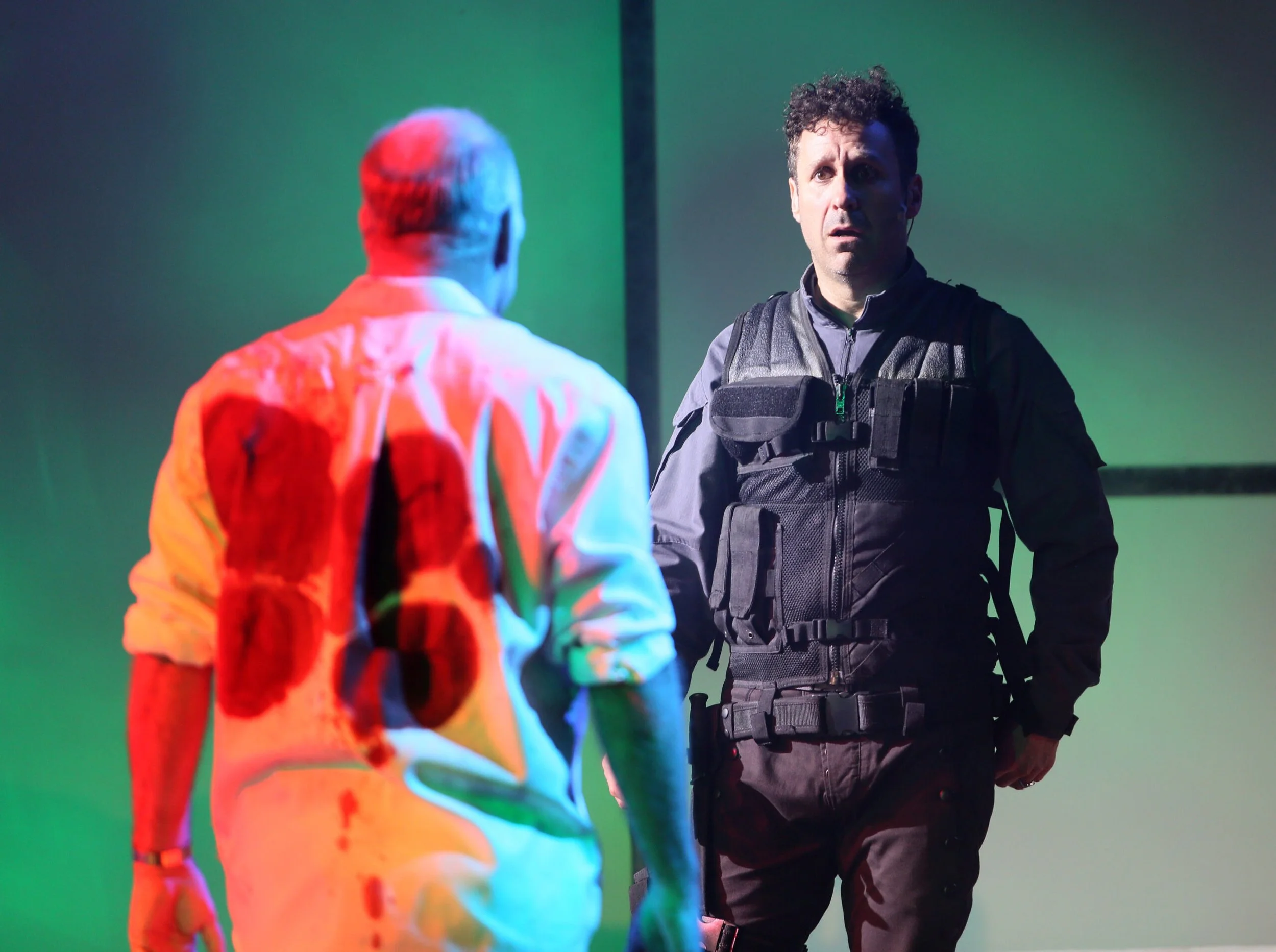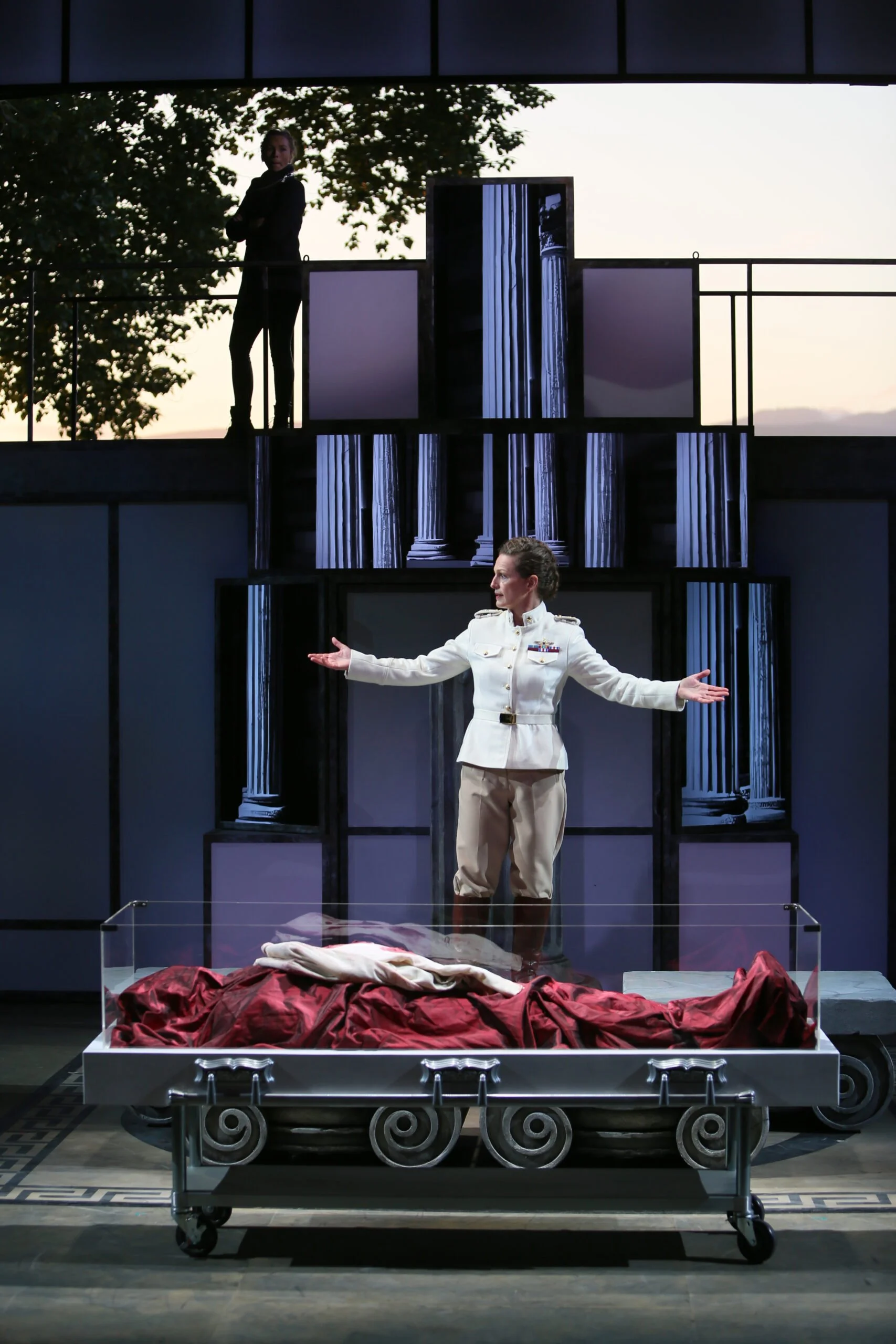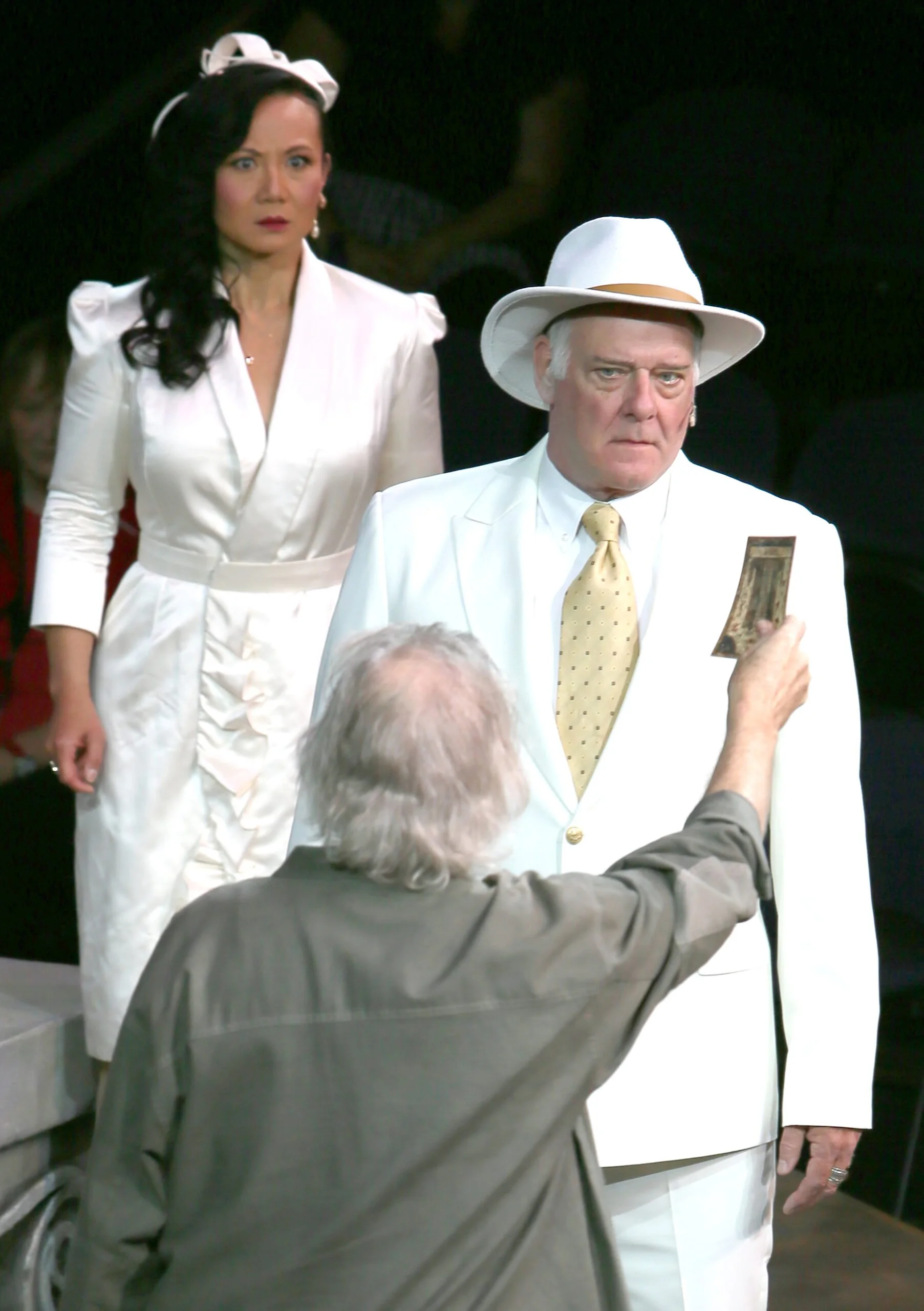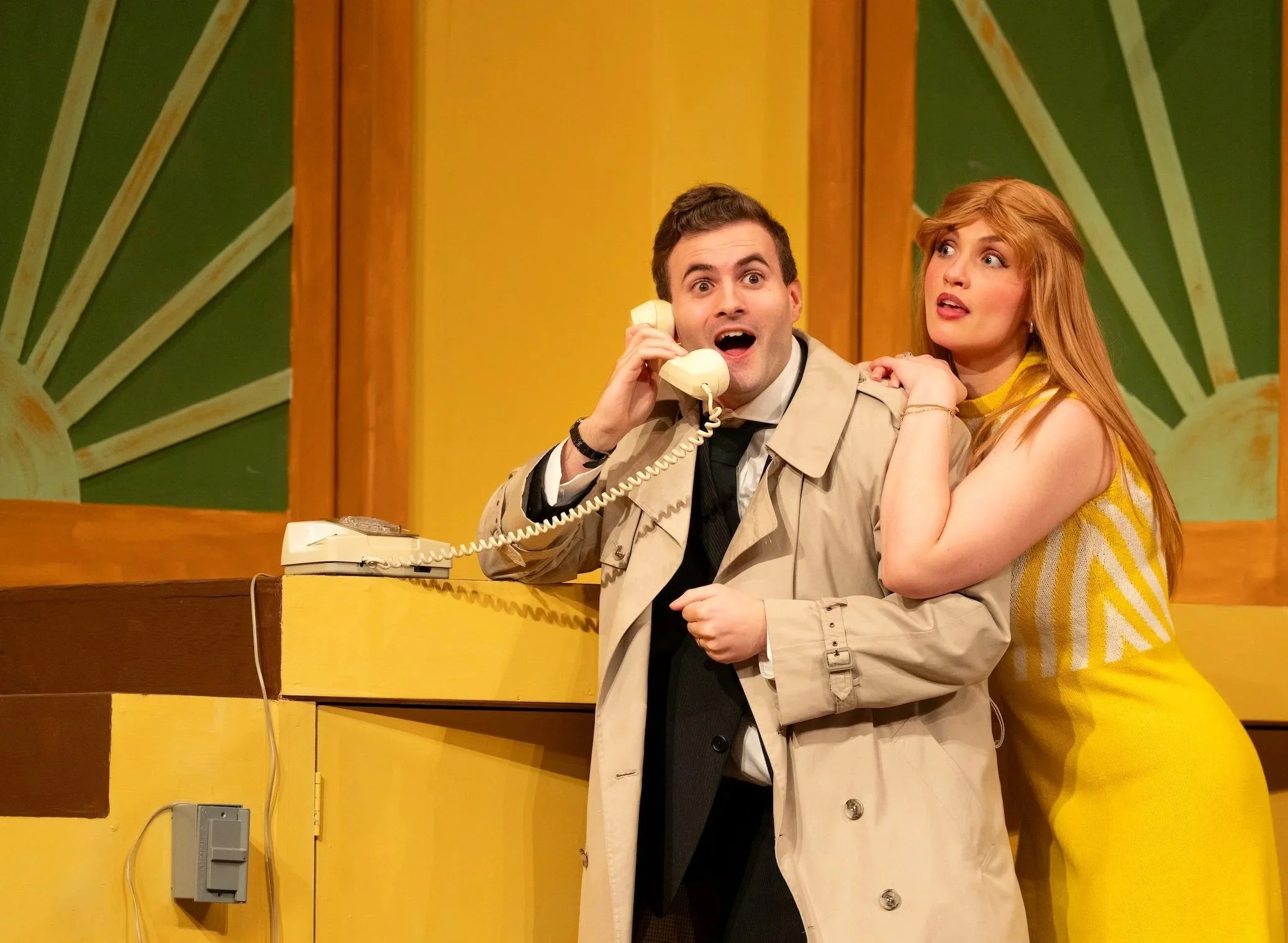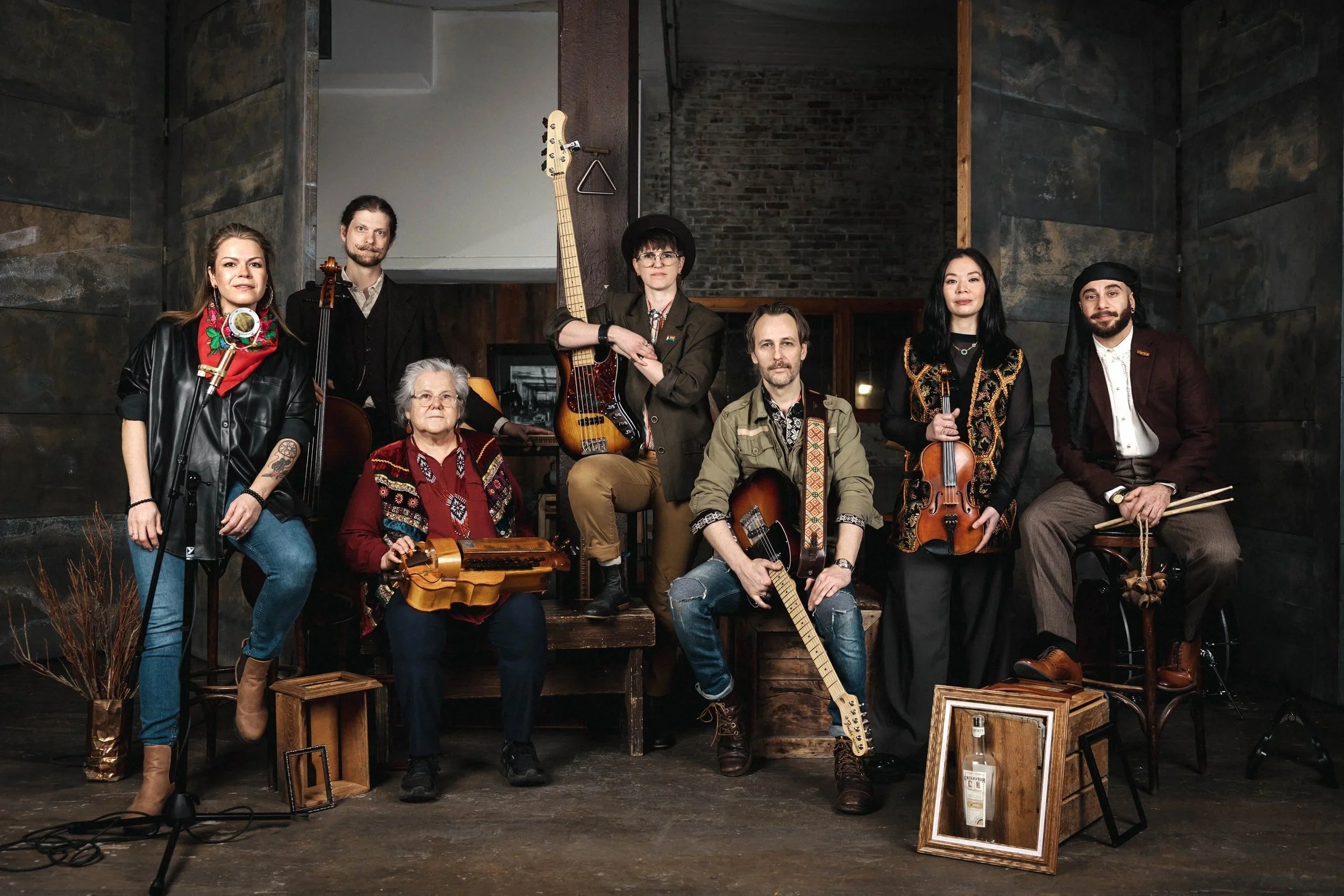Theatre review: Striking staging, gutsy vision in a Julius Caesar that speaks directly to our times
At Bard on the Beach, screens, mobs, political rallies, and military battles make Shakespeare’s ideas resonate in 2023
Andrew Wheeler’s Julius Caesar haunts Andrew McNee’s Brutus in Julius Caesar. Photo by Tim Matheson
Jennifer Lines as Mark Antony. Photo by Tim Matheson
Bard on the Beach presents Julius Caesar at the BMO Mainstage in Vanier Park to September 24
WITH ITS raucous Trump-style political rallies, viral video screens, and cracking machine-gun fire, Bard on the Beach’s new Julius Caesar speaks directly to this moment.
And yet the staging and production design keep the references universal enough to drive home the unsettlingly timeless truths of Mark Antony’s warning “Cry 'Havoc!', and let slip the dogs of war.” Look no further than the mashup of contemporary touchstones in Jessica Oostergo’s striking costumes: black hoodies, asymmetrical motorcycle jackets, and Doc Martens suggest street mobs and rioters, while the soldiers’ khaki helmets and flak jackets look straight out of Zaporizhzhia.
Director Cherissa Richards’s take on Shakespeare’s compelling and complex political drama—only staged once before in the fest’s history—is gutsy and often chilling. In his taut new adaptation, writer Stephen Drover has pared the play down to its brutal essence: the power of rhetoric over a crowd and the dangers of “crying havoc”. At the same time, he emphasizes the ambiguity and interior struggle of Caesar’s traitorous comrade Brutus.
In the story, conspirators plot against Caesar, jealous of his power and fearing he will rise to tyranny. They convince his friend Brutus to join in on the assassination on the infamous “Ides of March”. An incensed Mark Antony, devoted ally to Caesar, tries to use words (and eventually weapons) to drive the conspirators out of Rome.
In an effective touch, the characters—especially Scott Bellis’s eerily intense soothsayer—frequently yell out and madly applaud from up in the aisles of the audience, making it feel like we are sitting in the Roman senate, or out in its central piazzas. (Sometimes we join in with the fervour by clapping along with them.)
Richards’s choice to have women tackle some of these roles brings rich new meanings to some of the political maneuvering. Olivia Hutt’s Casca and Emma Slipp’s Cassius—both rivetingly played—come across, then, not just as people struggling for power, but women fighting for a place at the table, every bit as ruthlessly as the men. Ditto for Jennifer Lines’s nuanced Mark Antony; you can feel her grief at Caesar’s death, and her speech, in which she turns the Romans against the insurrection, is a thrilling study in the emotional power of rhetoric. (Adding to that exhilaration is the chance to see the Bard veteran sink her teeth into some of Shakespeare’s meatiest writing.)
Sharon Crandall, Andrew Wheeler, and Scott Bellis in Julius Caesar. Photo by Tim Matheson
As the title character (wearing a white Italian suit that will remind you of Fanucci in The Godfather) Andrew Wheeler is a suitably commanding presence. He gets the tone exactly right, suggesting but not overdoing the feigned modesty of a populist president.
In Andrew McNee’s hands, Brutus is weak, indecisive, wavering in his values, prone to kindness, and easily swayed. That may not be precisely how Shakespeare wrote the character—Antony calls him the “noblest Roman of us all” (though possibly deceptively)—but the take here may be a more realistic, contemporary way to see the traitor. In today’s socio-political climate, as in ancient Rome, the most dangerous subjects may be the ambivalent ones. (Think about the environmentalists who drive gas-guzzling SUVs, or the alienated Middle American “moderates” who voted for Trump—although in his costume here, McNee somehow more resembles a disaffected youth, which also seems fitting.)
Clever staging abounds on Pam Johnson’s set, a mix of broken pillars and multimedia screens that hint at technology’s capacity to make conspiracy theories and violence go viral. The vicious, blood-soaked assassination scene is haunting, the perpetrators’ hands gruesomely stained (like Lady Macbeth’s) by their murderous act. The killing of Cinna the poet, the mob mirroring their leaders’ actions, is equally disturbing. A later standout happens when, for emotional effect, Antony wheels out Caesar’s body, shrouded in blood-red-organza, in a kind of sci-fi-meets-ancient-Rome glass gurney. And wait till you see Caesar zombie-walk off into the Great Beyond.
More debatable, perhaps, in this production are the extended war scenes near the end—which feel a bit like suddenly switching from dramatic thriller to action movie. The barricades go up, sirens sound, lights flash, guns fire. It’s not something you necessarily expect from a night out at Shakespeare.
But then again, there is a sense of reason to it, in a show that, to its immense credit, commits to a vision. For this play about the dangers of rhetoric and the power of the spoken word to create dissent and chaos, here is a production that shows us the inescapable outcome. The dogs of war, slipping out.


